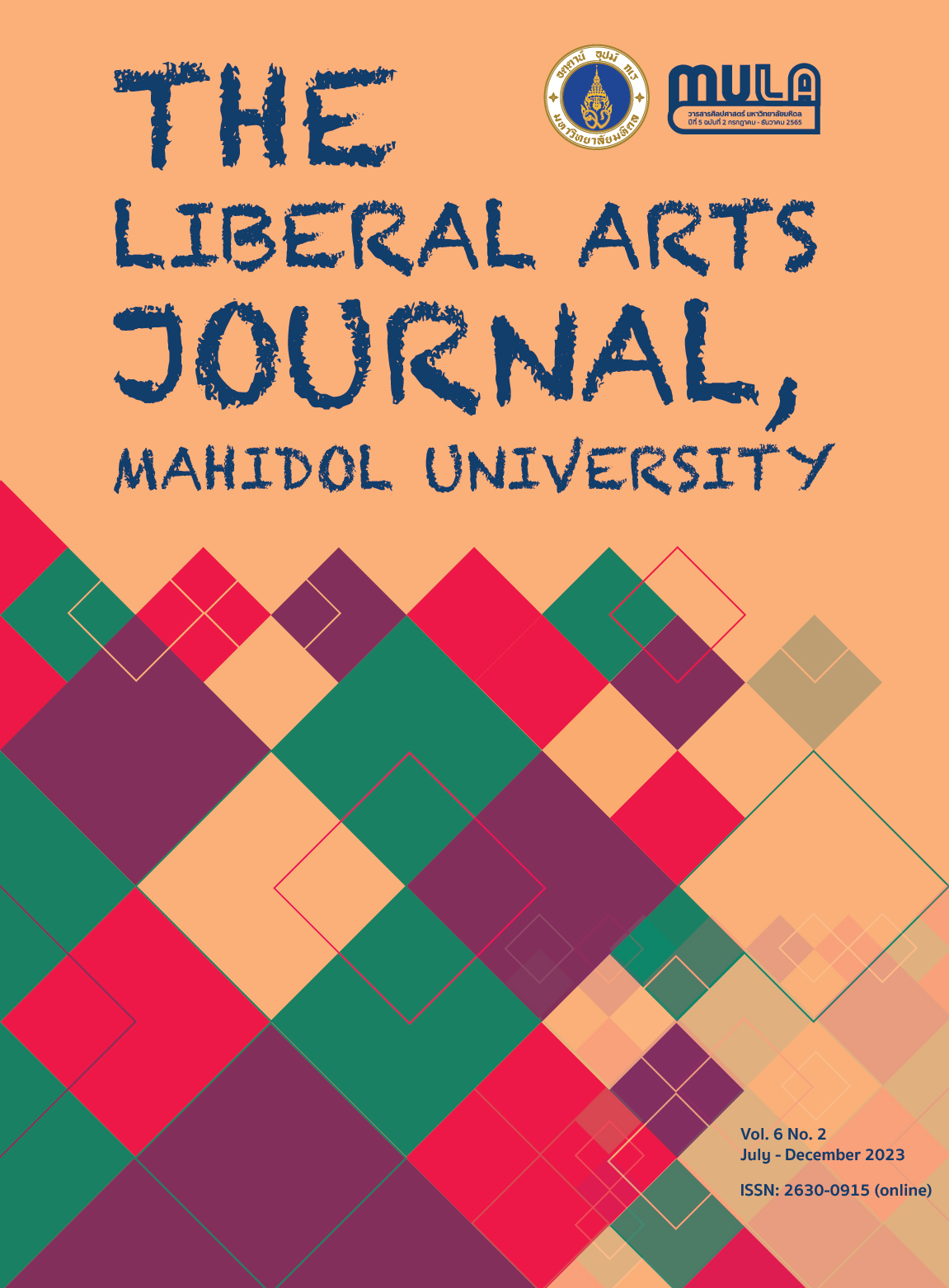The Psychology of a Human Relationship and Its Existence in a Multicultural Society
Keywords:
psychology, human relationships, multicultural societyAbstract
During public health crises, natural disasters, and social and political crises that are characterized by ambiguity, and uncertainty, it is deeply rooted in people's systems of thought that insecurity in life can happen at any time. Thus, people have created values and cultures to protect themselves in the face of greater changes, as a catalyst for human beings to adapt to and to seek solutions in a variety of dimensions. This article will give the reader a glimpse of solutions for understanding the psychology of human relationships in a multicultural society through descriptive analysis.
References
Akhil, G., & James, F. (1999). Culture, power, place: Explorations in critical anthropology. Durham: Duke University Press.
Anan, G. (2008). Multiculturalism in the context of social and cultural transition. Chiang Mai: regional center for social science sustainable development.
Chaiyapan, M. (2020). Human Behavioral Development. Bangkok: Chulalongkorn University Press.
Chelong, A. (2022). Future studies and the development of student activities in Thai higher education post-COVID-19 pandemic. Journal of Organizational Innovation & Culture, 12(2), 7-17.
Ebsuksiri, A. (2013). Psychology for teachers. Bangkok: Chulalongkorn University Press.
Fukuyama, F. (2011). The origins of political order: From prehuman times to the French revolution. New York: D&M Publishers.
Kaewtep, K., & Hinviman, S. (2012). Stream of political economy theory and communication studies. Bangkok: Parbpim Printing.
Kathavanich, T. (2004). General psychology. Bangkok: Se-Education.
Keawkungwal, S. (2002). Developmental psychology for all ages. Bangkok: Thammasat Press.
King, L. A. (2008). The science of psychology: an appreciative view. New York: McGraw-Hill.
Ngamwittayapong, A. (2006). The learning process in Thai society and changes: From the community era to the modern development era. Bangkok: Thaiknowledge.
Odeh, R. (2012). Islam and Sustainable Development. USA: Gower Publishing.
Panasree, S. (n.d.). Multiculturalism in postmodern philosophical perspectives. Retrieved October 20, 2022. From https://sju.ac.th/pap_file/effee2b31dee65cf57b529cab4714926.pdf.
Sirivunnabood, P. (2010). Development psychology theory. Bangkok: Chulalongkorn University Press.
Somboon, T. (2020). Peace education: The great property of humanity. Bangkok: Chulalongkorn University Press.
Srigate, G. (n.d.). The political analysis based on multicultural concepts. Retrieved October 20, 2022. From https://www.stou.ac.th/Schoolnew/polsci/UploadedFile/81713-12.pdf?fbclid=IwAR3wmWzizfUentE2WUuNqUBbjnVAgtgjUp6eGP p2UMDxEUi3ZDwOgi0v7OE.
Thongyoo, D. (2016). Social perception and social reality: differences needed to be awared. Valaya Alongkorn Review (Humanities and Social Sciences), 6(1), 139-149.
UNDP. (2022). Uncertain times, unsettled lives: Shaping our Future in a transforming world. United Nations Development Program.
Waranusantikule, S. (2006). Social psychology: Theories and applications. Bangkok: Se-Education.
Downloads
Published
How to Cite
Issue
Section
License

This work is licensed under a Creative Commons Attribution-NonCommercial-NoDerivatives 4.0 International License.




